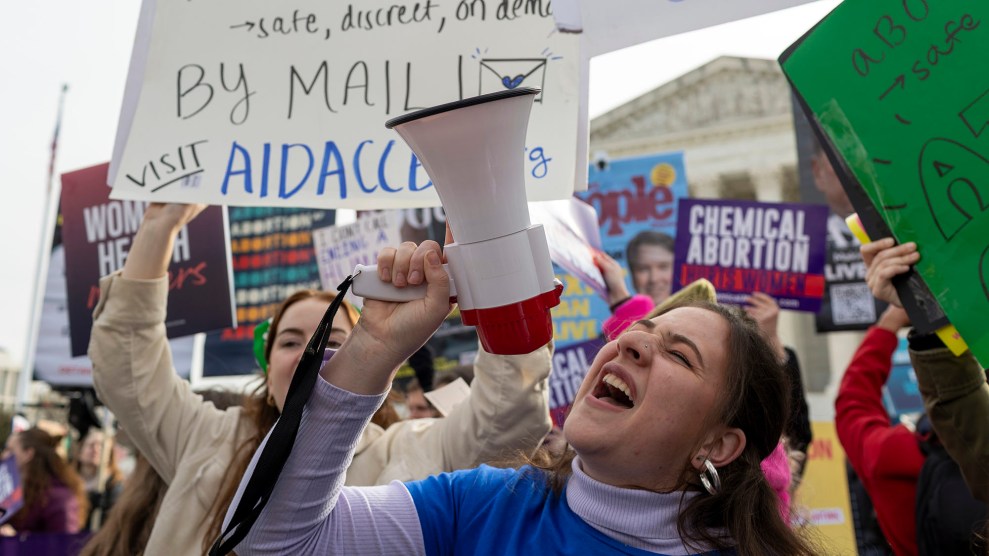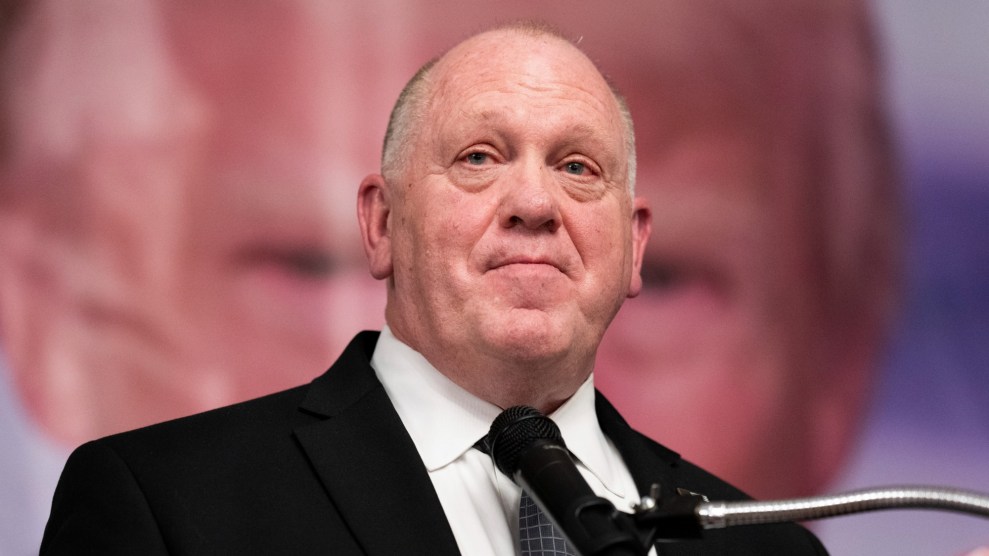Yesterday, President Bush put forward a revised list of nominees for the Federal Elections Commission. As we’ve reported in-depth, the FEC currently only has two of its customary six commissioners, meaning the body that regulates all federal elections lacks the quorum necessary to do its job. Bush’s new slate of commissioners, and the Republicans’ new willingness to play ball in the confirmation process, suggests that a fully functioning FEC may be on the horizon.
Here’s the deal. Formerly, the nominees were Democrat Robert Lenhard, Democrat Steven Walther, Republican David Mason (the sitting Chairman), and Republican Hans von Spakovsky (HVS). Democrat Ellen Weintraub was already sitting on the FEC. The problem with that roster was that von Spakovsky was objectionable to Democrats, who saw him as the GOP’s point man on minority disenfranchisement in his previous activities. Democrats wanted to vote on each nominee individually, leading to the likely rejection of HVS and the acceptance of everyone else. Final result in the Democrats’ scenario: a FEC with three Democrats and a sole Republican. The Republicans rejected the idea and said instead that all the nominees, including HVS, had to be approved together. Deadlock ensued.
The new situation is this. Lenhard has withdrawn himself from consideration (he was kind enough to speak with me for my earlier story on this subject). Mason has been removed from consideration by the White House. The new slate of nominees is Democrats Cynthia Bauerly (new), Walther (old), and Democrat Weintrab (renominated) on the left, and Republicans Donald McGahn (new), Caroline Hunter (new), and von Spakovsky (old) on the right.
The key difference, though, is that Senate Republicans and the White House have agreed to up-or-down votes (which require a simple majority) on each individual nominee. The likely outcome is everyone except von Spakovsky will get approved and be sent the FEC. That creates an unbalanced FEC, but enough commissioners to be operable. “As to 3-3 versus 2-3, if the White House wanted to be assured of keeping parity, they would have kept David Mason and withdrawn von Spakovsky,” said Reid spokesman Stephen Krupin in an email. “They have decided now to let the chips fall where they may.”
Krupin said that a date for votes has not been set, but that Reid is committed to a functioning FEC “as soon as possible.” Some good government groups are crying foul, however. They say that Mason’s removal from consideration by the White House was motivated by Mason’s questions about John McCain’s late-2007 loan in which McCain may or may not have used public matching funds as collateral, a move that would bind McCain to spending limits he has surpassed.
Democracy 21 President Fred Wertheimer said:
“The White House dumped Mason after President Bush had twice proposed Mason for the FEC in the last two and a half years, in December 2005 as a recess appointment and in January 2007 as a nominee to the FEC for Senate Confirmation.
“The only apparent reason for President Bush to drop Commissioner David Mason at this stage… is to prevent him from casting an adverse vote against Senator McCain on important enforcement questions pending at the Commission…. President Bush’s dumping of Mason can only be viewed as a bald-faced and brazen attempt to wrongly manipulate an important enforcement decision by the nation’s campaign finance enforcement agency.
“The White House action today represents the political equivalent of obstruction of justice.
“It is very similar to the improper way in which the White House and Justice Department previously removed U. S. Attorneys from their positions because of what they did, did not do or might do in various enforcement matters.”
The Campaign Legal Center had a similar take. Downside for those on the left, or those interested in an honest brokering of the situation: McCain now has the functioning FEC he needs to be approved for general election public financing and has one fewer pesky commissioner to deal with. Upside: the $4 billion industry known as the federal elections will have oversight for 2008.















